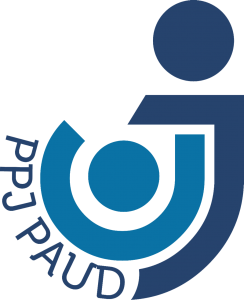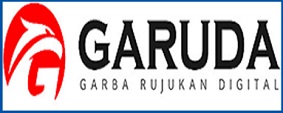Early Childhood Education Teacher's Readiness of Computer Literacy for Facing The 4.0 Industrial Revolution
DOI:
https://doi.org/10.26555/jecce.v2i2.1150Keywords:
computer literacy, revolusi industri, teacher readiness, revolution industryAbstract
Facing the 4.0 Industrial Revolution in education is done by preparing human resources that have critical thinking skills and problem solvers, communication and collaborative skills, creativity and innovative thinking, and literacy of Information and communication technology. This research aims to know the extent of teachers at ECE in the of computer literacy based on their duties and responsibilities as educators in the learning process. This research is using the mixing method (quantitative and qualitative) approach with data collection instruments in the form of questionnaires and interviews. Analysis of the data used is a descriptive analysis deduction, namely analyzing and providing an interpretation of the collected data than needed studies. The subject of this study involved 58 professional certified teachers and had participated in training on ICT topics. The results showed that the level of readiness of teachers in the computer literacy on the readiness of supporting factors is to have a laptop and the basic skills of the applications in the form of MS office (words, PPT, Excel) and search engines only to support they working in organizing the learning administration. The teacher should be mastering of ICT as part of computer literacy including research activities, organizing, evaluating, communicating information, and understanding the rules of use of information and communication technology.
References
Anderson, C. A. (1983). Computer Literacy: Changes for Teacher Education. Jurnal of Teacher Education, 6 - 9.
Astini, N. S. (2019). Pentingnya Literasi Teknologi Informasi dan Komunkasi Bagi Guru SD Untuk Menyiapkan Generasi Milenial. Seminar Nasional Dharma Arcaya Ke 1. Tantangan dan Peluang Dunia Pendidikan di Era 4.0 (pp. 113 - 120). Singaraja, Bali: STAHN Mpu Kuturan Singaraja.
Darmawan, J. (2018, November 28). https://aceh.tribunnews.com. Retrieved from www.serambinews.com: https://aceh.tribunnews.com/2018/11/27/menjadi-guru-era-pendidikan-40.
Dincer, S. (2016). Assesing Computer Literacy of University Graduates. The Third International Conference on Open and Flexxible Education (pp. 294 - 303). Hongkong: The Open University of Hongkong.
Djamarah, S. (2002). Rahasia Sukses Belajar. Jakarta: Rineka Cipta.
Hermanto, Marsudi, Subali, E., & Hendrajati, E. (2018). Efektivitas TIK untuk Peningkatan Proses Belajar Mengajar di PAUD, TK dan Madrasah Diniyah "Mamba'ul Hisan Dusun Sekargadung, Desa Balerejo II, Kecamatan Panggungrejo, Kabupaten Blitar. SEMATEKSOS 3 "Strategi Pembangunan Nasional Menghadapu Revolusi Industri 4.0 (pp. 77 - 84). Surabaya: ITS.
Imam, F. N. (2015). Pemanfaatan TIK pada Pembelajaran Oleh Guru SMP Negeri 1 Ungaran Dalam Rangka Implementasi K13. Skripsi tidak diterbitkan. Semarang: Universitas Negeri Semarang.
MalakauskienÄ—, L., & Å aparnienÄ—, D. (2007). Computer Literacy in the Context of School as a Learning Organization. Social Research / Socialiniai tyrimai, 73 - 85.
Merkel, A. (2014, Februari 19). https://www.bundesregierung.de. Retrieved Oktober 03, 2019, from https://www.bundesregierung.de/breg-en/chancellor: https://www.bundesregierung.de/breg-en/chancellor/speech-by-federal-chancellor-angela-merkel-to-the-oecd-conference-477432
Muthamainnah, I. (2016). Kesiapan Guru Kelas Menggunakan Media Teknologi Informasi dan Komunikasi (TIK) dalam Pembelajaran di Jakarta Selatan. Skripsi tidak diterbitkan. Jakarta: UIN Syarif Hidayatullah Jakarta.
Nasution, L. H. (2013). Analisis Literasi Informasi Pengguna Perpustakaan Universitas Sumatra Utara. Tesis tidak diterbitkan. Bogor: Institut Pertanian Bogor.
Nurhayati, T. (2016). Probematika Guru dalam Menguasai TIK Pada Pembelajaran Pendidikan Agama Islam dan Solusinya di MI Al-Asy'ari Kuniran, Batangan Kabupaten Pati. Skripsi tidak diterbitkan. Semarang: Universitas Negeri Walisongo.
Septina, R., & Akbariansyah. (2019). Meningkatkan Profesionalisme Guru Dalam Menghadapi Tantangan Global di Era Revolusi Industri 4.0. Seminar Nasional Pendidikan (pp. 713 - 724). Palembang: Pasca Sarjana Universitas PGRI Palembang.
Sturges, P., & Gastinger, A. ( 2010). Information Literacy as Human Right. Libri, 195-202. Retrieved from https://www.researchgate.net: https://www.researchgate.net/publication/259672528_Information_Literacy_as_a_Human_Right.
Tashakkori, A., & Teddlie, C. (2010). Mixed Methodology. Mengombinasikan Pendeketan Kualitatif dan Kuantitatif. (B. P. Priadi, Trans.) California: Sage Publication.
Downloads
Published
How to Cite
Issue
Section
License
Authors who publish with this journal agree to the following terms:
- Authors retain copyright and grant the journal right of first publication with the work simultaneously licensed under a Creative Commons Attribution-ShareAlike 4.0 International License that allows others to share the work with an acknowledgement of the works authorship and initial publication in this journal.
- Authors are able to enter into separate, additional contractual arrangements for the non-exclusive distribution of the journals published version of the work (e.g., post it to an institutional repository or publish it in a book), with an acknowledgement of its initial publication in this journal.
- Authors are permitted and encouraged to post their work online (e.g., in institutional repositories or on their website) prior to and during the submission process, as it can lead to productive exchanges, as well as earlier and greater citation of published work (See The Effect of Open Access).















